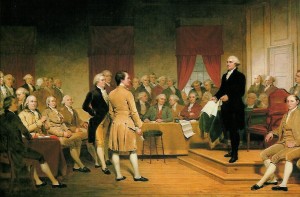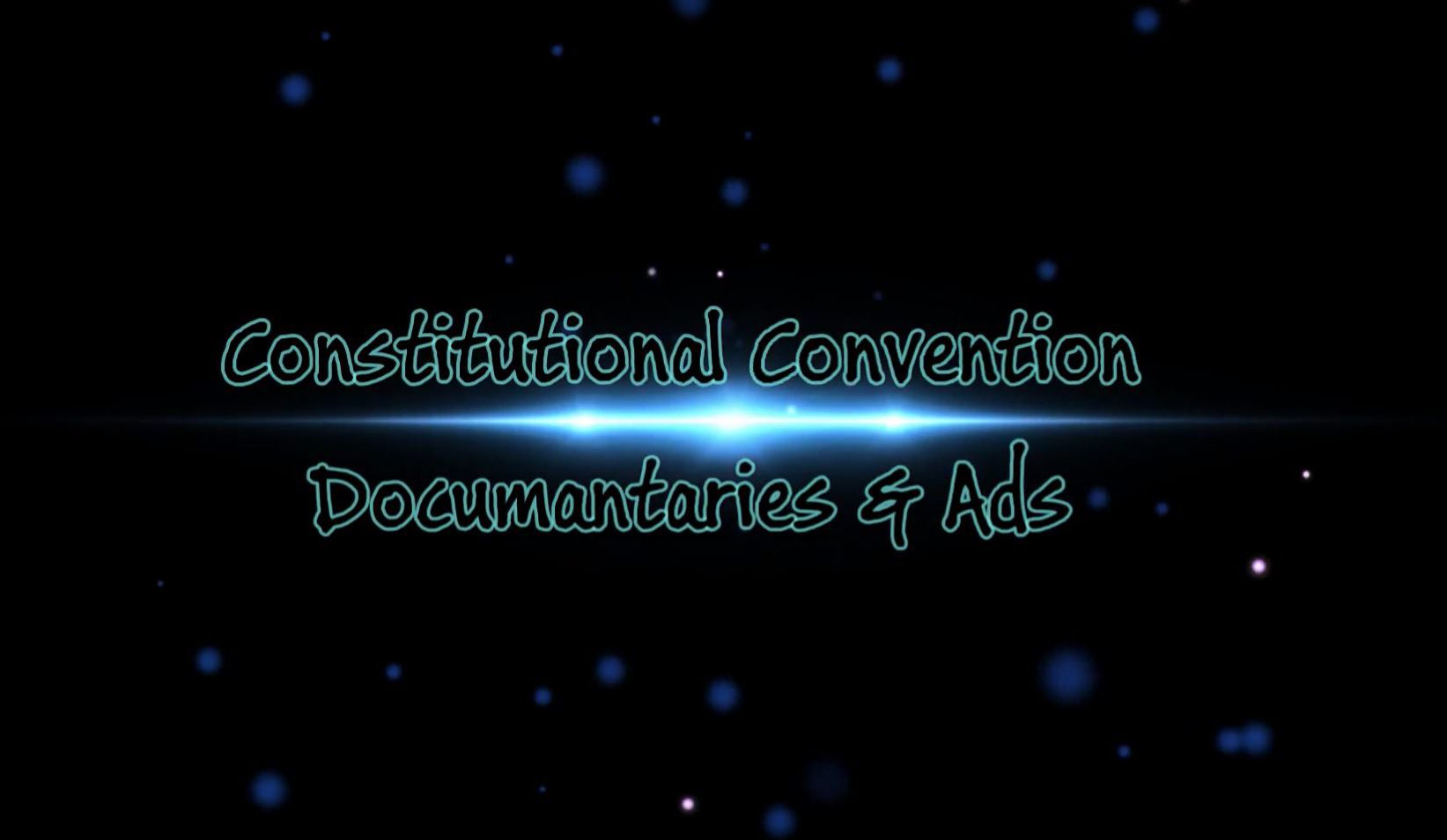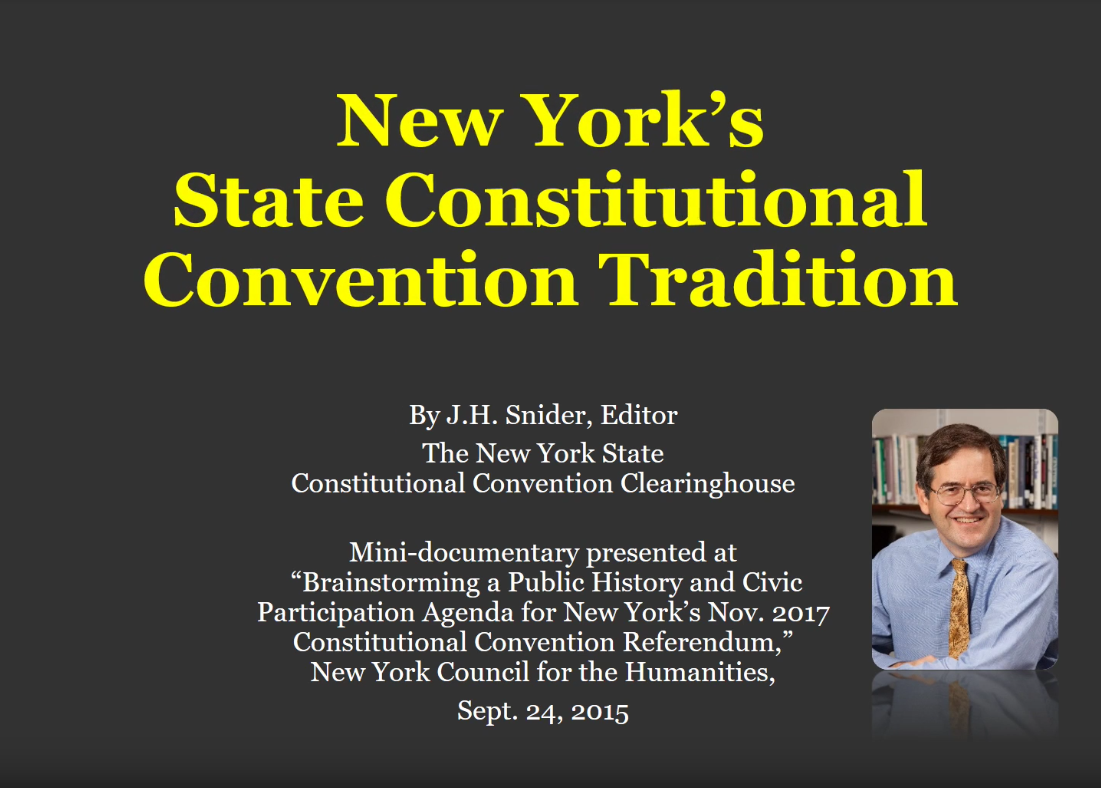Course Title:
A Political Primer on the Periodic State Constitutional Convention Referendum
Course Length:
4 Hours, 30 Minutes
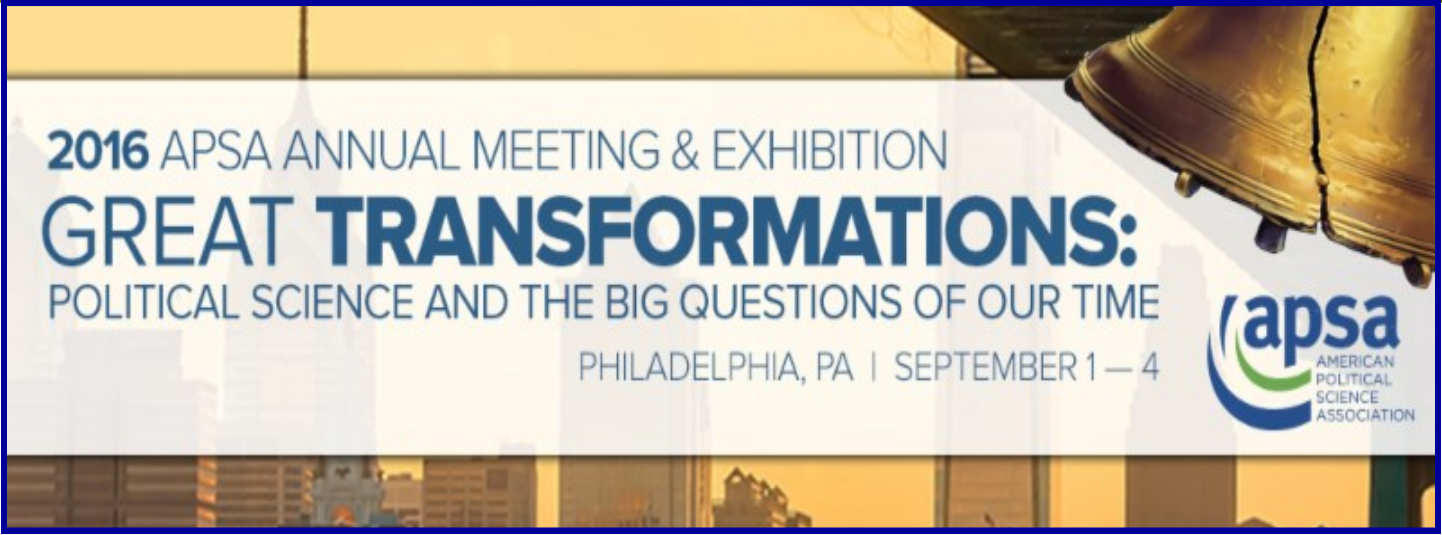
The course was produced by J.H. Snider, editor of the State Constitutional Convention Clearinghouse and the New York State Constitutional Convention Clearinghouse. The Law & Courts Section of the American Political Science Association published a summary of the course in the form of a symposium in the Fall 2016 issue of its newsletter. The four course participants who contributed to the symposium are:
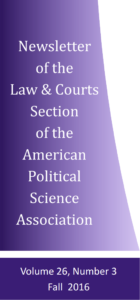 J.H. Snider, Editor, The State Constitutional Convention Clearinghouse
J.H. Snider, Editor, The State Constitutional Convention Clearinghouse- Sandy Levinson, Professor, University of Texas Law School
- John Dinan, Professor, Wake Forest University
- Carol Weissert, Director, LeRoy Collins Institute & Professor, Florida State University
Copied below are:
- The short course agenda
- The course videos
- Bios of the short course panelists
- Background paper
Agenda
Introduction (5 minutes)
J.H. Snider, President of iSolon.org and Editor of The State Constitutional Convention Clearinghouse
Part 1: TV Documentaries & Ads
Documentaries (78 minutes, including opening credits)
- Michigan, 1961-2 (unedited), Wayne State University and Michigan State University
- Montana 1972 (excerpt), Montana PBS
- New Jersey, 1947 (excerpt), New Jersey Public Television
- British Columbia, 2004 (unedited), Reinhard Mohn Prize
- Ireland, 2012-14 (excerpt), We The Citizens
- Iceland, 2012 (excerpt), Wilma’s Wish Productions
Political Ads (17 minutes)
- Illinois, 2008, 1 ad, The Alliance to Protect the Illinois Constitution
- Connecticut, 2008, 2 ads, Vote No: Protect Our Constitution,
- Connecticut, 2008, 1 ad, The Connecticut Catholic Conference
- Hawaii, 2008, 7 ads, Hawaii Alliance
- Hawaii, 2008, 1 ad, Yes For a Constitutional Convention
- Michigan, 2010, 1 ad, Michigan Manufacturers Association
- Rhode Ireland, 2014, 1 ad, Citizens for Responsible Government
- Rhode Ireland, 2014, 1 ad, Rhode Island Center for Freedom & Prosperity
- New York, 2017, 1 ad, Niagara Wheatfield Teachers Association with NYSUT
Break (5 minutes)
Length: 93 Minutes
Length: 7 Minutes. Note: The video above ends with a copy of this video.
Part 2: Panels (each approximately 30 minutes in length)
Panel #1: New York’s Upcoming State Constitutional Convention Referendum: Historical Context and Importance
- Slide show documentary (8 minutes), “New York State’s Constitutional Convention History: 1777-2017,” prepared by J.H. Snider, The New York State Constitutional Convention Clearinghouse. This slide show was prepared for an event at the New York Council for the Humanities, September 24, 2015.
- Sanford Levinson, University of Texas, Austin
Panel #2: America’s State Constitutional Conventions: History and Public Opinion Towards
- John Dinan, Wake Forest University
- William Blake, University of Maryland, Baltimore
Panel #3: Alternate Legislative Bypass Institutions for Constitutional Reform
- David Farrell, University College Dublin
- Carol Weissert, Florida State University
- Craig Holman, Public Citizen
- John Dinan, Wake Forest University
Panel #4: The Politics of New York’s 2017 State Constitutional Convention Referendum
- J.H. Snider, The New York State Constitutional Convention Clearinghouse
- Richard Briffault, Columbia Law School and Citizens Union
- Craig Holman, Public Citizen
Note: The course panels were video recorded in five 33 minute segments, and YouTube doesn’t allow videos of greater length than 1 hour, which prevented consolidation of the segments into a single video. As a result, the lengths of the video segments below do not correspond to the lengths of the panels. Panel #2 was divided into three parts. The fourth panel was consolidated into one 43 minute video.
Total Length of All Four Panels: 2 hours, 26 minutes, 10 seconds. The full playlist, which can automatically play all the segments in a continuous sequence, can be found here.
Panelists
William Blake
William Blake is assistant professor in the Department of Political Science at the University of Maryland, Baltimore County. His research interests include judicial decisionmaking, public attitudes towards the Constitution, religion and law, and baseball and law. He is the co-author with Sanford Levinson of “When Americans Think about Constitutional Reform: Some Data and Reflections,” forthcoming.
Richard Briffault
Richard Briffault is the Joseph P. Chamberlain Professor of Legislation at Columbia Law School and Vice Chair of Citizens Union. His research, writing and teaching focus on state and local government law, legislation, the law of the political process, government ethics and property.
He is co-author of the textbook State and Local Government Law (7th ed. 2009); principal author of Dollars and Democracy: A Blueprint for Campaign Finance Reform (the Report of the Commission on Campaign Finance Reform of The Association of the Bar of the City of New York 2000); and author of Balancing Acts: The Reality Behind State Balanced Budget Requirements (20th Century Fund Press 1996) as well as more than seventy law review articles.
In 2014, Professor Briffault was appointed Chair of the Conflicts of Interest Board of the City of New York. He was a member of New York State’s Moreland Act Commission to Investigate Public Corruption (2013-14), and served as a member of or consultant to several New York City and State commissions dealing with state and local governance including the New York State Commission on Local Government Efficiency & Competitiveness (2007-08), the Temporary New York Commission on Constitutional Revision (1993-95), the New York City Real Property Tax Reform Commission (1993), and the New York City Charter Revision Commission (1987-89). He is currently the Reporter for the American Law Institute’s project on Principles of Government Ethics. He is also vice-chair of Citizens Union of the City of New York.
Professor Briffault joined the Columbia faculty in 1983. He received his B.A. summa cum laude from Columbia University and his J.D. magna cum laude from Harvard University. He was law clerk to the Honorable Shirley M. Hufstedler of the United States Court of Appeals for the Ninth Circuit, and was Assistant Counsel to New York Governor Hugh L. Carey.
John Dinan
John Dinan’s research focuses on state constitutionalism, federalism, and American political development. He is the author of several books, including The American State Constitutional Tradition and Keeping the People’s Liberties: Legislators, Citizens, and Judges as Guardians of Rights, and he writes an annual entry on state constitutional developments for The Book of the States. He is the editor of Publius: The Journal of Federalism and is a past chair of the Federalism and Intergovernmental Relations Section of the American Political Science Association. He received his PhD from the University of Virginia.
David Farrell
Professor Farrell is a member of the Royal Irish Academy. He is a specialist in the study of parties, elections, electoral systems and members of parliament. His current research focuses on the role of deliberation in constitutional reform processes. In 2012 he was elected as President of the Political Studies Association of Ireland. In 2013 he was elected as Speaker of the Council of the European Consortium for Political Research. Professor Farrell is founding co-editor of Party Politics. Prior to his move to Dublin, Professor Farrell was professor and head of Social Sciences at the University of Manchester.
Craig Holman
Craig Holman, Ph.D. is currently Government Affairs Lobbyist for Public Citizen. As Legislative Representative, he serves as the organization’s Capitol Hill lobbyist on campaign finance and governmental ethics. Previously, Holman was Senior Policy Analyst at the Brennan Center for Justice, New York University School of Law. Dr. Holman worked closely with reform organizations and the Democratic congressional caucus of the 110th Congress in drafting and promoting the “Honest Leadership and Open Government Act,” the new federal lobbying and ethics reform legislation signed into law on September 14, 2007. As a consequence of this legislation, Holman is also working with European nongovernmental organizations and members of the European Commission and Parliament in developing a lobbyist registration system for the European Union.
Holman has assisted in drafting campaign finance reform legislation, including pay-to-play legislation, and has conducted numerous research projects on the initiative process and the impact of money in politics. He has been called upon to assist as a researcher and/or expert witness defending in court the Bipartisan Campaign Reform Act of 2002 (BCRA) as well as the campaign finance reform laws of Alaska, Arkansas, California and Colorado. He has authored and co-authored several studies on campaign finance and the initiative process, including four major works entitled BUYING TIME 2000: TELEVISION ADVERTISING IN THE 2000 FEDERAL ELECTIONS (2001); THE PRICE OF JUSTICE: A CASE STUDY IN JUDICIAL CAMPAIGN FINANCING (1995); TO GOVERN OURSELVES: BALLOT INITIATIVES IN THE LOS ANGELES AREA (1992), and DEMOCRACY BY INITIATIVE (1992). Some of his other publications include: “Lobbying Reform in the United States and the European Union: Progress on Two Continents,” in Conor McGrath, ed., INTEREST GROUPS AND LOBBYING (2009); “The Structure and Organization of Congress and the Practice of Lobbying,” in Thomas Susman and William Luneburg, eds., THE LOBBYING MANUAL: A COMPLETE GUIDE TO FEDERAL LAW GOVERNING LAWYERS AND LOBBYISTS, FOURTH EDITION (2008); “Close the 527 Loophole” in Matt Kerbel, ed., GET THIS PARTY STARTED: HOW PROGRESSIVES CAN FIGHT BACK AND WIN (2006); “The Bipartisan Campaign Reform Act: Limits and Opportunities for Non-Profit Groups in Federal Elections,” Northern Kentucky Law Review (2004); “The Nuts and Bolts of Public Financing of State Candidate Campaigns,” National Civic Review (2003); and THE NEW POLITICS OF JUDICIAL ELECTIONS (2002).
Sanford Levinson
Sanford Levinson, who holds the W. St. John Garwood and W. St. John Garwood, Jr. Centennial Chair in Law, joined the University of Texas Law School in 1980. Previously a member of the Department of Politics at Princeton University, he is also a Professor in the Department of Government at the University of Texas. Levinson is the author of approximately 400 articles, book reviews, or commentaries in professional and popular journals–and a regular contributor to the popular blog Balkinization. He has also written six books: Constitutional Faith (1988, winner of the Scribes Award, 2d edition 2011); Written in Stone: Public Monuments in Changing Societies (1998); Wrestling With Diversity (2003); Our Undemocratic Constitution: Where the Constitution Goes Wrong (and How We the People Can Correct It)(2006); Framed: America’s 51 Constitutions and the Crisis of Governance (2012); and An Argument Open to All: Reading the Federalist in the 21st Century (forthcoming, November 2015). Edited or co-edited books include a leading constitutional law casebook, Processes of Constitutional Decisionmaking (6th ed. 2015, with Paul Brest, Jack Balkin, Akhil Amar, and Reva Siegel); Reading Law and Literature: A Hermeneutic Reader (1988, with Steven Mallioux); Responding to Imperfection: The Theory and Practice of Constitutional Amendment (1995); Constitutional Stupidities, Constitutional Tragedies (1998, with William Eskridge); Legal Canons (2000, with Jack Balkin); The Louisiana Purchase and American Expansion (2005, with Batholomew Sparrow); Torture: A Collection (2004, revised paperback edition, 2006); and The Oxford Handbook on the United States Constitution (with Mark Tushnet and Mark Graber, 2015). He received the Lifetime Achievement Award from the Law and Courts Section of the American Political Science Association in 2010.
He has been a visiting faculty member of the Boston University, Georgetown, Harvard, New York University, and Yale law schools in the United States and has taught abroad in programs of law in London; Paris; Jerusalem; Auckland, New Zealand; and Melbourne, Australia. He was a Fellow at the Institute for Advanced Study in Princeton in 1985-86 and a Member of the Ethics in the Professions Program at Harvard in 1991-92. He is also affiliated with the Shalom Hartman Institute of Jewish Philosophy in Jerusalem. A member of the American Law Institute, Levinson was elected to the American Academy of Arts and Sciences in 2001. He is married to Cynthia Y. Levinson, a writer of children’s literature, and has two children, Meira, a member of the faculty at the Harvard Graduate School of Education (after teaching in the Atlanta and Boston public school systems), and Rachel, a lawyer with the Brennan Center in Washington, D.C.
J.H. Snider
J.H. Snider is the President of iSolon.org, which develops and advocates for democratic reforms where elected officials have an institutionalized conflict of interest with the American public. iSolon produces the State Constitutional Convention Clearinghouse and state specific clearinghouses for upcoming state constitutional convention referendums, including the New York State Constitutional Convention Clearinghouse (2017 referendum) and the Rhode Island State Constitutional Convention Clearinghouse (2014 referendum).
Snider has published dozens of op-eds on state constitutional convention referendums and been a fellow at Harvard University’s Edmond J. Safra Center for Ethics (2011-13) and the Harvard Kennedy School of Government’s Shorenstein Center on Media, Politics and Public Policy (2008). He came to Washington, DC as an American Political Science Association Congressional Fellow in Communications & Public Policy (1999-2000), where he worked as an information policy fellow on the U.S. Senate Judiciary Committee. He then served as a fellow and research director at the New America Foundation (2001-2007). He has a Ph.D. in American Government from Northwestern University, an M.B.A. from the Harvard Business School (with a focus on non-profit management), and an undergraduate degree in Social Studies from Harvard College.
Carol Weissert
Dr. Weissert became the director of the LeRoy Collins Institute, which is leading The Partnership for Revising Florida’s Constitution, in October of 2007. She is also the LeRoy Collins Eminent Scholar Chair and Professor of Political Science at Florida State University. Prior to taking that position in August 2003, she was professor of political science and director of the Institute for Public Policy and Social Research at Michigan State University.
Her research focuses on federalism and intergovernmental issues and state policy, particularly health policy. She has published over four dozen articles in political science and public policy journals and is the author or co-author of four recent books including Governing Health: The Politics of Health Policy, the third edition of which was published in 2006 by Johns Hopkins University Press. She was the co-author (with David Denslow) of Tough Choices: Shaping Florida’s Future for the Collins Institute. She is the editor of Publius: The Journal of Federalism, an international journal on federalism and intergovernmental relations published by Oxford University Press. Her doctorate in political science is from the University of North Carolina at Chapel Hill.
Background Paper
J. H. Snider, Does the World Really Belong to the Living? The Decline of the Constitutional Convention in New York and Other US States, 1776–2015, Journal of American Political Thought 6, no. 2 (Spring 2017): 256-293.
